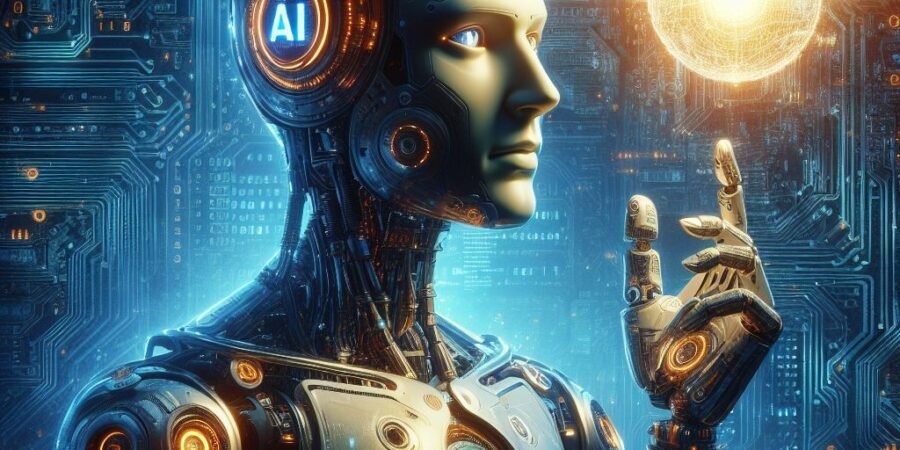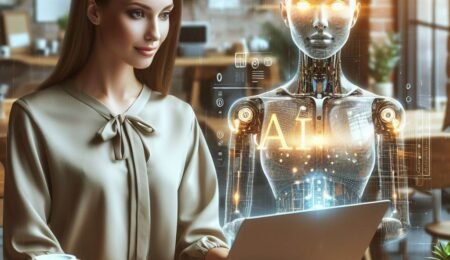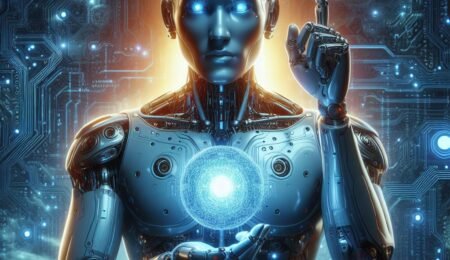In today’s digital age, artificial intelligence (AI) is revolutionizing various industries, and the construction market is no exception. AI’s potential to transform construction processes, enhance productivity, and optimize project management is immense. If you’re an individual or a business interested in leveraging AI for marketing and operational improvements, this article will provide you with an in-depth look at how AI is reshaping the construction industry.
The Role of AI in Construction
AI in construction encompasses a wide range of applications, from project planning and design to on-site execution and post-construction maintenance. By automating complex tasks, analyzing vast amounts of data, and providing actionable insights, AI can significantly improve efficiency and accuracy in construction projects.
Project Planning and Design
One of the most critical phases in construction is project planning and design. AI tools can assist architects and engineers in creating more efficient and sustainable designs. These tools analyze various data points, including environmental impact, material properties, and structural integrity, to optimize building designs.
Example: AI-powered software like Spacemaker AI helps architects design optimal building structures by analyzing numerous site-related data points, such as sunlight exposure, wind patterns, and noise levels. This results in more efficient and livable spaces.
Construction Site Management
Managing a construction site involves coordinating multiple activities and ensuring everything stays on schedule and within budget. AI can enhance site management by providing real-time monitoring and predictive analytics.
Stat: According to McKinsey, AI and machine learning can increase productivity in construction by up to 20%.
Safety and Risk Management
Safety is paramount in construction, and AI can play a vital role in mitigating risks. AI-driven systems can predict potential hazards and suggest preventive measures, significantly reducing the likelihood of accidents on-site.
Example: AI-based solutions like Smartvid.io analyze site photos and videos to identify safety hazards, such as workers not wearing helmets or other protective gear. This proactive approach helps in maintaining a safer work environment.
AI-Driven Tools and Technologies in Construction
The integration of AI in construction is facilitated by various tools and technologies designed to streamline different aspects of construction projects.
Drones and Robotics
Drones and robotics are increasingly being used in construction to perform tasks that are dangerous or time-consuming for humans. AI-powered drones can survey construction sites, monitor progress, and even inspect hard-to-reach areas.
Stat: The use of drones in construction has increased by 239% year-over-year, according to DroneDeploy.
Building Information Modeling (BIM)
BIM is a digital representation of the physical and functional characteristics of a facility. AI enhances BIM by automating clash detection, optimizing scheduling, and improving project collaboration.
Example: Construction companies are using AI-integrated BIM to predict potential project delays and optimize resource allocation, resulting in more efficient project delivery.
Predictive Maintenance
AI can predict equipment failures and maintenance needs before they occur, reducing downtime and extending the lifespan of machinery. This predictive capability ensures that construction projects stay on schedule and within budget.
Example: Companies like Predii use AI to analyze data from construction equipment, predicting when maintenance is needed and preventing costly breakdowns.
Real-World Applications of AI in Construction
To understand the true impact of AI in construction, let’s explore some real-world examples where AI has made a significant difference.
Skanska
Skanska, a leading construction company, utilizes AI to optimize project planning and execution. By integrating AI into their project management systems, Skanska has been able to reduce project delays and costs significantly.
Vinci
Vinci, a global construction firm, uses AI-powered predictive analytics to enhance their project management processes. This approach has led to improved efficiency and better resource allocation, resulting in more successful project outcomes.
Groove.ai
Groove.ai exemplifies how AI can be leveraged to enhance various aspects of business, including construction. Designed to help individuals and businesses worldwide, Groove.ai offers a suite of AI-driven tools that can elevate your business to new heights:
- Unleash Your Blog’s Potential: Groove.ai’s Blog Optimizer enhances your SEO and engagement, boosting your visibility and reader loyalty.
- Sales Funnel Excellence: The Funnel Wizard helps streamline your customer journey, enhancing conversion rates and maximizing ROI.
- Emails That Drive Results: With Killer Email Copy, Groove.ai crafts messages that captivate, engage, and inspire action, leading to unmatched engagement rates.
- Maximize Webinar Replays: The Webinar Replay Bullet Maker creates key takeaways that entice further views, extending the lifespan of your content.
The Future of AI in the Construction Market
As AI technology continues to advance, its applications in the construction market will expand further. Here are some trends to watch for:
Advanced Robotics
Future construction sites will see more advanced robotics performing complex tasks such as bricklaying, painting, and even welding. These robots, guided by AI, will increase precision and efficiency while reducing human labor costs.
AI-Driven Sustainable Construction
AI will play a crucial role in promoting sustainable construction practices. By analyzing environmental data and material properties, AI can help design eco-friendly buildings that minimize carbon footprints and utilize renewable energy sources.
Autonomous Construction Vehicles
Autonomous vehicles, powered by AI, will become more common on construction sites. These vehicles can perform tasks like earthmoving and material transportation with greater accuracy and efficiency than human-operated machinery.
Conclusion
AI is transforming the construction market by enhancing efficiency, safety, and sustainability. From project planning and design to site management and predictive maintenance, AI-driven tools and technologies are revolutionizing how construction projects are executed. For businesses and individuals interested in leveraging AI, the possibilities are vast and promising.
Are you ready to integrate AI into your construction projects and elevate your business to new heights? Start exploring AI solutions today and see how they can transform your operations. If you found this article helpful, share it with your friends and colleagues!






Leave a Reply